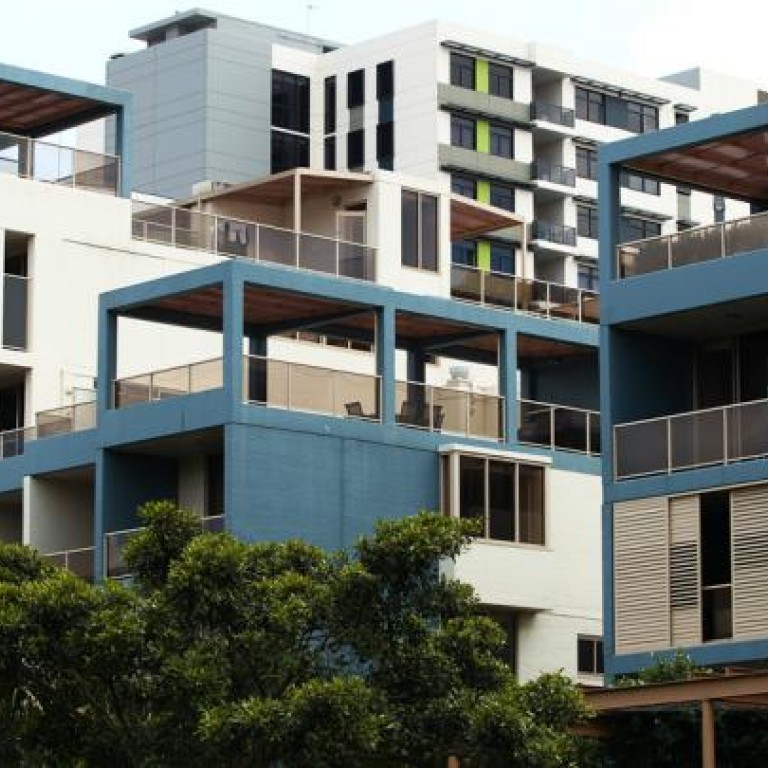
Asia-Pacific's time to shine
With Europe and the US mired in economic woes, the region is shining, writes Peta Tomlinson
One person's challenge is another's opportunity, or so the saying goes. In the context of property investment, the euro zone's continuing woes seem to augur well for Asia-Pacific markets.
A global research report by real estate services firm DTZ suggests that from an investor's perspective "most Asia-Pacific markets remain attractive", considering the degree of uncertainty elsewhere.
With economic woes in Europe and the United States continuing to dampen sentiment, 53 of 61 markets in Asia-Pacific are rated as either hot or warm this year, making them "increasingly attractive" to global investors. And those numbers are rising, according to the data.
While the DTZ research focuses on the commercial, retail and office sectors, the report's co-author, David Ji, DTZ head of Greater China research, believes the residential sector looks equally favourable, with the mainland a standout.
"China has the best opportunities - where else do you get economic growth of over 8 per cent?" he says.
Ji says that despite a widely reported slowdown in China, prospects remain good across all sectors.
"Market sentiment is positive. According to our recent China property market sentiment survey, 39 per cent of single-country funds in the Asia-Pacific region are targeting China in 2013.
"The sheer volume of demand for housing in Chinese cities will ensure a stable price and transactions volume growth."
Knight Frank's latest Prime Global Residential Forecast also highlights Asia-Pacific, noting that with the global west-east shift in the economic balance of power, "there is no doubt that the prospects in the medium term for prime residential markets in the region are promising".
According to Knight Frank, the protectionist measures introduced over the past 12 months in the Asian "safe havens" of Singapore and Hong Kong should subdue prices in those markets in the short term. It is more positive about China, particularly Beijing, where it expects to see strong price performance over the next 12 months.
Jakarta and Bangkok - markets which have solid fundamentals and little or no cooling measures - are tipped to be the top performers in Asiathis year.
"Both of these markets have been the star performers over the past year, and we expect this to continue," Knight Frank says. Kate Everett-Allen, of International Residential Research at Knight Frank, expects wealth creation will continue to influence the world's luxury residential markets this year, but currency movements will have an increasing bearing on the flow of wealth from city to city.
She says that while international locations, such as Geneva, Monaco, Dubai and Hong Kong, rank the slowing global economy as the biggest risk, there are more insular concerns on domestic economies in the growth cities of Kuala Lumpur, Mumbai, Ho Chi Minh City and Sydney.
"Barring a collapse of the euro, or Asian protectionism being ramped up, the outlook for luxury homes in the world's key cities is one of quiet optimism," Everett-Allen says.
In terms of where Asian investors are buying, Australia continues to be a key focus. Since launching a dedicated China desk in June last year, Savills reports strong interest.
Asian investors are interested in a broad range of real estate, including land sub-divisions, medium-density residential developments and large commercial buildings, the firm says.
Tony Leong, head of Savills China Desk - NSW, says wealthy Hong Kong and mainlanders are splurging hundreds of millions of dollars on residential and commercial property.
Inquiries have ranged from small residential property developments worth A$5 million (HK$326 million) to A$10 million, up to office buildings in the region of A$300 million-plus, he says.
"Looking to the future, I don't expect this to slow down, particularly with the Australian government's introduction of the new Significant Investment Visa."
This new visa pathway for migrant investors requires the applicant to invest into complying investments for a minimum of four years before being eligible to apply for a permanent visa. It is particularly targeted to Chinese investors, Leong says.
Apart from top-end commercial property, prime residential is also in their sights. Leong cites the recent off-market sale of a A$9 million home in Hunter's Hill, to a mainland buyer.
It was the highest sale price
in the Hunter's Hill area for last year, and one of the highest prices achieved across Sydney for the year.
"With the Australian economy being particularly resilient and set to return to surplus before any other developed economy, it means that a further price growth is anticipated, making this prognosis for investors, locally and internationally, highly appealing," Leong says. "In particular, Sydney's under-supply of accommodation
and high in-migration plus restrictions on new development [due to zoning and geography] will also be a key factor in keeping prices the highest of any Australian city."

